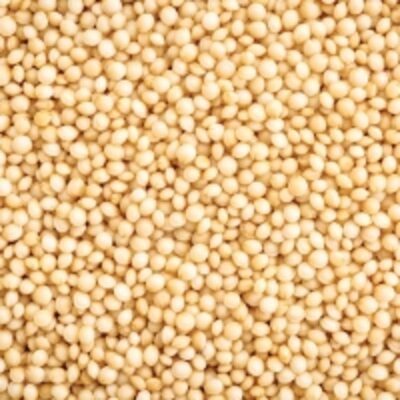Sign up today and be a part of the fastest growing B2B platform
All Categories
Call: +91 842 908 8885
Amaranth is a nutritious grain and a group of more than 60 different species of amaranthus. However, there are only three species, namely Amaranthus cruenus, Amaranthus hypochondriacus, and Amaranthus caudatus, that are commonly cultivated for their edible seeds. According to the FAO, amaranth grain as a source of protein is "superior in content and quality to traditional cereals." In the Inca, Maya, and Aztec civilizations, amaranth was considered a dietary staple food. Recently, amaranth has gained popularity as a superfood or health food, as it has a remarkable nutritional profile and is associated with numerous health benefits. It is an excellent food for brain and neurological health, a good source of antioxidants, helps improve heart health by lowering LDL cholesterol levels, improves bone health, and is naturally gluten-free, making it suitable for celiac diets. A popular ingredient in bread, pasta, soups, desserts, biscuits, drinks, and breakfast meals, amaranth provides a good source of protein, fiber, manganese, magnesium, phosphorus, iron, and other nutrients.
Company details
- CountryIndia
- Trust score
 10
10
Trading Details
Terms of delivery (incoterms)
buyer
Loading on departure
buyer
Export declaration at customs
buyer
Transport to the port of export
buyer
Truck unloading at the port of export
buyer
Loading onto ship/aircraft in port of export
buyer
Transport (water/air) to port of entry
buyer
insurance
buyer
Unloading at the port of entry
buyer
Truck unloading at the port of export
buyer
Transport to destination
buyer
Customs clearance upon import
buyer
Import Duties and Taxes
buyer
Unloading at destination
Seller
Loading on departure
Seller
Loading on departure
Seller
Export declaration at customs
Seller
Transport to the port of export
Seller
Truck unloading at the port of export
Seller
Loading onto ship/aircraft in port of export
buyer
Transport (water/air) to port of entry
buyer
insurance
buyer
Unloading at the port of entry
buyer
Truck unloading at the port of export
buyer
Transport to destination
buyer
Customs clearance upon import
buyer
Import Duties and Taxes
buyer
Unloading at destination
Seller
Loading on departure
Seller
Export declaration at customs
Seller
Transport to the port of export
Seller
Truck unloading at the port of export
Seller
Loading onto ship/aircraft in port of export
buyer
Transport (water/air) to port of entry
buyer
insurance
buyer
Unloading at the port of entry
buyer
Truck unloading at the port of export
buyer
Transport to destination
buyer
Customs clearance upon import
buyer
Import Duties and Taxes
buyer
Unloading at destination
Seller
Loading on departure
Seller
Export declaration at customs
Seller
Transport to the port of export
Seller
Truck unloading at the port of export
Seller
Loading onto ship/aircraft in port of export
buyer
Transport (water/air) to port of entry
buyer
insurance
buyer
Unloading at the port of entry
buyer
Truck unloading at the port of export
buyer
Transport to destination
buyer
Customs clearance upon import
buyer
Import Duties and Taxes
buyer
Unloading at destination
Seller
Loading on departure
Seller
Export declaration at customs
Seller
Transport to the port of export
Seller
Truck unloading at the port of export
Seller
Loading onto ship/aircraft in port of export
Seller
Transport (water/air) to port of entry
buyer
insurance
Divided
Unloading at the port of entry
divided
Truck unloading at the port of export
Seller
Transport to destination
buyer
Customs clearance upon import
buyer
Import Duties and Taxes
buyer
Unloading at destination
Key terms associated with this company
- Fruit Seeds
- Oil Seeds
- Spice Seeds
- Carom Seeds
- Coriander Powder
- Coriander Seeds
- Coriander Seeds
- Cumin Powder
- Cumin Seeds
- Fennel Seeds
- Fenugreek Seeds
- Mustard Seeds
- Oil Seeds
- Sesame Seeds
- Spices
- Turmeric
- Herbs
- Psyllium Husk
- Food - By Products
- Food Products
- Fruit Powder
- Herbal Products
- Oil Seeds
- Herbal & Ayurvedic Medicine
- Herbal Extracts
- Medicinal Herbs
Company Details
- Business typeNot-available
- Main marketNot-available
- Established yearNot-available
- City / StateVaranasi
- CountryIndia
- AddressSurvey # 102/1, Opp. S. R. Patel Engineering College, Unjha-Patan Road, At & Post - Sinhi Unjha 384170 Gujarat India















